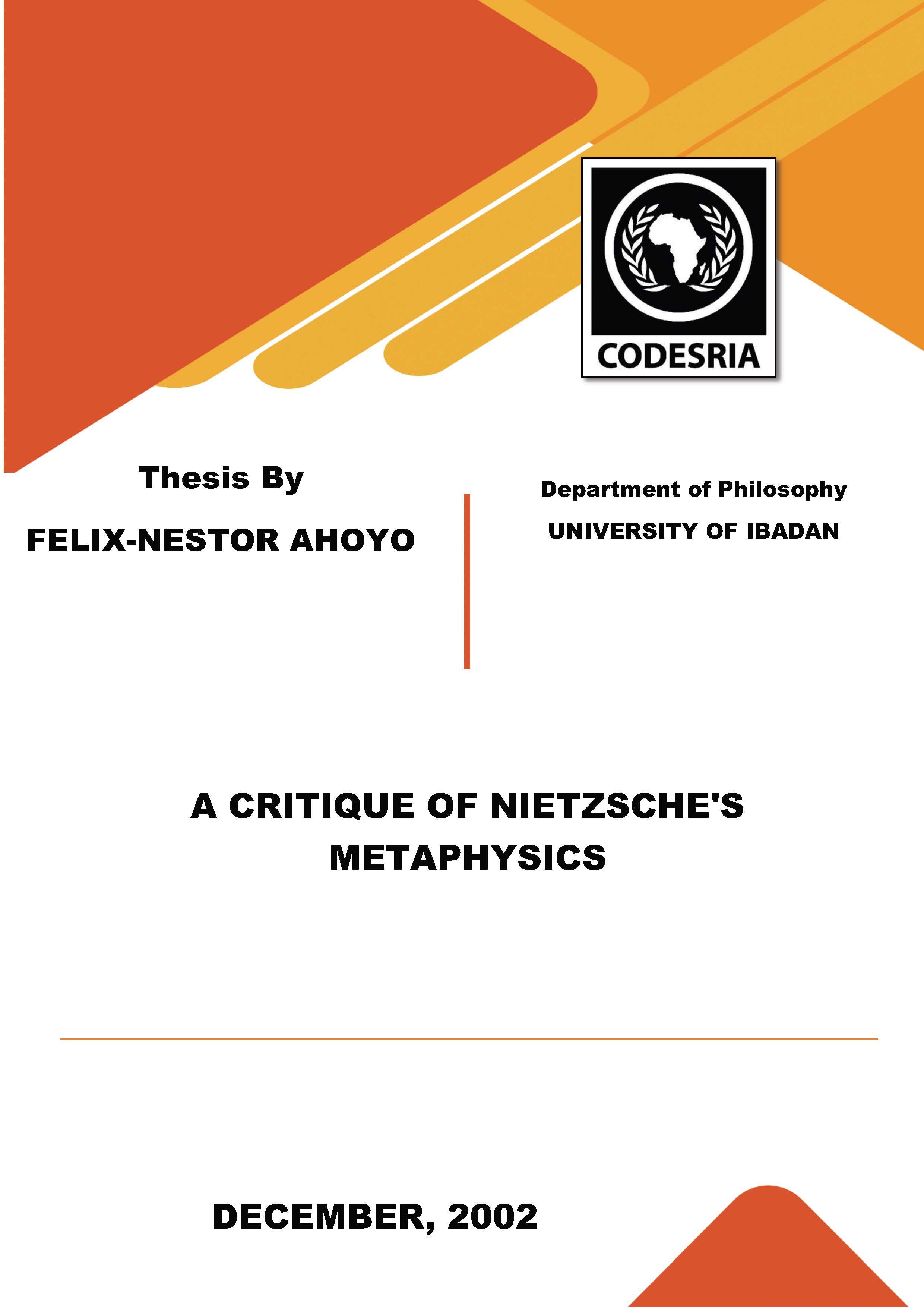A CRITIQUE OF NIETZSCHE'S METAPHYSICS
Keywords:
Philosophy, culture, metaphysics, critical analysis, philosophy of culture, western culture, african cultureSynopsis
This thesis atte.m pteçt.ah:examination qf Nietzsche's metaphysical philosophy : -~, . . . . ' . . . - .
which has for long . been oeglected. lt strives . to rise above the one-sided and ' . - . -·· - ~- - - -
superficial reading-of~Nietzsche'.s.philosophy by western philosophers.
The method of study is a combination of hermeneutic and · positivist
approaches. The · herrneneutic approach explored the implicit meanings of
Nietzsche's . metaphysics, while the positivist approach was used to analyse the
explicit meaning of this metaphysic. The combination of these two approaches
enables us fo determine the central vision of Nietzsche's metaphysical program.
f .
· Nietzsche's philosophy can be characterised as a metaphysics of mythical
type. What renders its specificity, however, is less the metaphysical aspect than its
mythical configuration. The metaphysics of Nietzsche, like other modern
metaphysical systems, is a metaphysics of immanence because it makes the last
principle of things reside inside the things and not outside them. According to him
natural existence in its totality is not created or determined by a supernatural
principle, a prime mover or an ordering intelligence - but it is its own cause, its own
. principlè. According. to Nietzsche the metaphysical principle that .determines the
totality of existence can be termed the Zarathustran principle which has two
fundamental components : the will to power and the eternal recurrence.
Downloads






